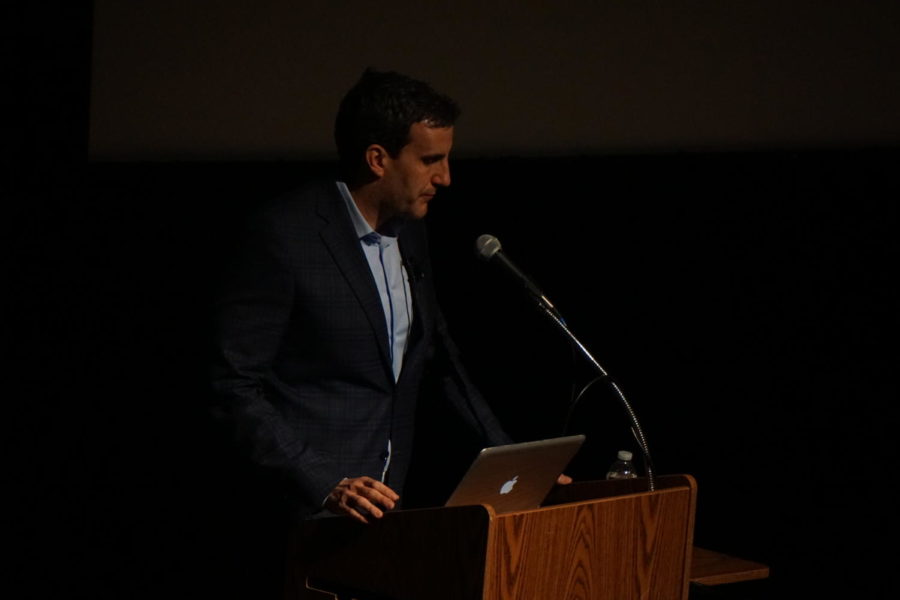Protecting the First Amendment
April 12, 2018
The First Amendment protects American’s rights to free speech, assembly, press, religion, and petition.
Paul Kix, deputy director for “ESPN, The Magazine” and author of a book, came to Iowa State to talk about free speech and the other rights protected by the First Amendment as a keynote speaker for Greenlee’s First Amendment Days.
Kix’s life had three major things that influenced his decisions for his career path. When he was ten years old he read Roald Dahl’s Charlie and the Chocolate Factory and decided to become an author.
As an eighteen-year-old, he read an inspiring article in Sports Illustrated that utilized techniques from fiction to tell a story and he decided to pursue sports journalism in college.
While he was a junior at Iowa State he watched the World Trade Center fall on 9/11 and decided to start looking at a different type of journalism.
Investigative reporting seemed to be the solution for him.
“I tried to live outside myself,” Kix said.
Throughout history, the media has been viewed as both good and bad by politicians. However, with the onslaught of new terms entering the American dialect, such as fake news and alternative facts, the media is portrayed on the bad side of things unless the specific outlet matches the reader’s views.
“Americans views grow more extreme,” Kix said.
The internet has helped create more extremes on either end of the political spectrum. People tend to converse with other people who have the same views that they do. This tendency to stay in an online bubble with the help of social media that “claims to connect us when it is actually ripping us apart,” Kix said.
There has also been a new trend of clickbait headlines.
“The best headline is the most outrageous,” Kix said.
However, it is also media outlets’ jobs to ensure that the population is receiving factual information to help the consumer form their own opinions. Kix gave an example from the Wall Street Journal. The Journal has a right-leaning editor; however, the Journal was the first place to report on the situation between Stormy Daniels and President Trump.
“A free press is the scaffolding upholding the first amendment,” Kix said.
Kix’s recommendation to help ensure the safety of the first amendment is to communicate.
“Pick up a publication from an outlet that doesn’t match your views and read the entire thing,” Kix said. “Then read it all the next day.”
He is not recommending that people give up on what they believe in, only that they remain open to people who have different views.
“True inclusion is an openness to views opposing your own,” Kix said.







